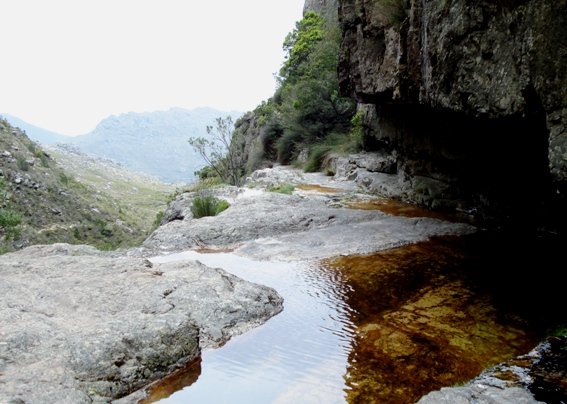Mountain stream

High elevations house plants adapted to the conditions. These conditions vary from craggy cliffs to smooth slopes covered in shrubs or short grass. A bare mountain slope, open to the elements, presents ordeals of sun, wind and storm, beyond the survival capacity of many plant species.
Not far below the elevated green mountain slope surface there is rock, however, forcing roots to intertwine in mats and anchor in crevices, available or created by the roots themselves. When the slope angles too steeply, the plants fail to find rootholds, becoming unable to grow their green covering. They are then reduced to living in gulleys and hollows where the slowly produced mountain soil accumulates, while theres bare rock all around to see.
Lower down, by the mountain streams that wash away soil to lower places along the course, tall trees may grow where this soil collects. But up here, much washing and little collecting leaves a great deal of naked rock where only tiny species will root to establish themselves in sheltered nooks. Although it’s likely to get cold here, some of these plants take cold to be cool.
Mountaineers will visit the stream at the easy access points, the brave ones exploring the length of the stream, negotiating challenges across the boulders. And see some plants they have never seen before!
Sometimes being interested, they’ll take note, even become wildly excited by rare finds and take pictures if the camera had survived the trip so far. And sometimes trample the unnoticed plant, or worse… uproot the cherished item to let it die far away where it could never grow.

